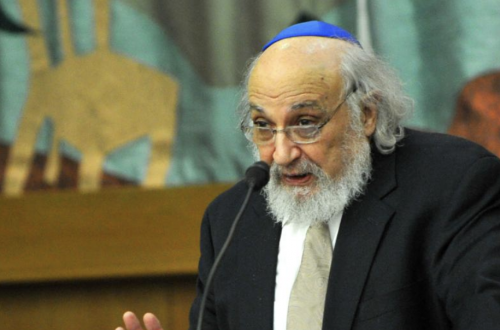This is a cross-post by Paul Bogdanor from The Algemeiner
Joel Beinin – Professor of History and of Middle East History at Stanford University – once threatened legal action after being named as a supporter of terrorism. That should have surprised even the most jaded observers of American academic “activism.” Ever since his days as a young Maoist on the campuses of Princeton, Harvard, and then Michigan, Beinin has competed in militancy with the most brutal terrorist foes of the Jewish state.
As a former student recalled, Beinin “had nothing but contempt for Israel, was well to the ‘left’ of the PLO, and was perfectly representative of the extremism of his milieu. One day, at a particular forum, he gave what I can only describe as a kind of beer-hall speech. Shouting and pumping his fist, he admonished the Arabs to forget any negotiating with Israel and to stay true to pure radicalism.”
Decades later, the campus demagogue who had dismissed the PLO as too moderate for his tastes was to become president of the Middle East Studies Association of North America.
Beinin waxes indignant at the suggestion that he is a terrorist apologist. “I have never, in any way, supported terrorism. I’ve spoken out against it,” he once insisted. Yet previously Beinin had written that “there is simply no comparison between the level of terrorism deployed by the American empire and its allies… and the often ineffectual use of terrorism by those who feel that they have no other weapon.” The latter he hailed as “movements of popular resistance.”
He also demanded that the United States stop “lecturing Yasir Arafat about the need to do more to stop terrorism.” Arafat, he explained, was “the symbol of Palestinian national aspirations and should be respected as such.” The hundreds of Israeli men, women, and children shot, burned, knifed, decapitated, mutilated, or blown to pieces at the behest of the PLO leader might have passed another verdict on him – had they been able to speak. And yet, having gone on record as opposing any criticism of Arafat’s crimes against humanity, Beinin later maintained that he had never been a supporter of terrorists.
Although Beinin’s credulous interviewers have praised him as an idealist who “favors peaceful coexistence of Palestinians and Israelis,” and who believes in “human rights and international law,” seasoned Beinin-watchers know better. In a message posted on a Haifa University discussion list at the end of 2004, Beinin left nothing to the imagination: “In my view,” he began, “the state of Israel has already lost any moral justification for its existence.” But his strictures were not confined to Israel: “What after all is the moral right of the United States to exist, based as it is on the ethnic cleansing of the indigenous peoples of North America and hundreds of years of slavery and structural racial discrimination?”
Not content with faking his credentials as an advocate of peace and human rights, Beinin’s admirers have celebrated him as “one of Stanford University’s most respected Middle East scholars.” But those who have examined his scholarship have a different story to tell. In one of his courses, Beinin taught that the Palestinians are descended from the ancient Canaanites (they are not), that the “Wailing” Wall in Jerusalem is the only remnant of the historic Jewish Temple (it is not), that Zionism and Palestinian nationalism developed at the same time (they did not), and that the U.S. has given Israel a trillion dollars in aid since 1948 (it has not).
In an online introduction to the Arab-Israeli conflict, Beinin and his co-author assert that Israel entered the 1956 war “ostensibly to reverse the Egyptian government’s nationalization of the Suez Canal” (no mention of the Egyptian blockade of southern Israel or terrorist attacks from Egyptian-occupied Gaza); that before 1993, “Israel did not acknowledge Palestinian national rights or recognize the Palestinians as an independent party to the conflict” (Israeli leaders acknowledged Palestinian national rights in 1948 and offered the Palestinians negotiations for statehood immediately after the 1967 war); and that the second intifada erupted because of “daily frustrations and humiliations” inflicted by Israel (and not because of a conscious decision by the Palestinian leadership). And so on. Beinin shows no sign of curtailing his lamentable tendency to manipulate facts.
Even Joel Beinin’s most devoted admirers must admit that he presents a strange spectacle: a self-described Maoist who vilifies Israel as insufficiently democratic; a supposed paragon of intellectual standards who regards the PLO as the epitome of moderation and Israel as a militaristic outpost of Western imperialism; a righteous moralist who accuses “the American empire” of terrorism while belittling the “often ineffectual” atrocities of his preferred “movements of popular resistance.” How bizarre that after compiling this record of ideologically-motivated dissembling and ethically tainted extremism, he should be trusted to form the minds of America’s best and brightest at Stanford University.

